
Reading Time: 16 minutes
Thinking of shipping your boat but baffled by the costs? You’re not alone! Boat shipping cost factors can seem like a deep ocean of details. In this easy-to-follow guide, we’ll set sail through the key elements that determine boat shipping costs and boat transport costs. Whether you’re moving a cozy fishing boat or a grand yacht, understanding these costs is crucial for a smooth voyage on your wallet.
Boat shipping might seem like a world of its own, with its own rules and secrets. That’s where we come in! We’re diving headfirst into the essential factors that influence boat shipping and boat transport costs. From your boat’s size and style to the journey it’s taking, every bit counts in shaping the cost. And it’s not just about the boat itself; market trends and the extra services you pick also play a big part.
So, are you ready to demystify the mysteries of shipping a boat? Join us as we navigate the ins and outs of boat transport costs. By the end of this journey, you’ll be well-equipped to make informed, cost-effective decisions for shipping your prized vessel. Let’s explore how these factors can sway the cost of boat shipping!
Types of Boat Shipping | Boat Shipping Cost Factors
1. Open Transport

- Description: The most common and cost-effective method. Your boat is loaded onto an open trailer and transported.
- Pros: Cost-effective, faster turnaround time, widely available.
- Cons: Limited protection from elements, exposed to road debris and weather conditions.
2. Enclosed Transport
- Description: For extra protection. Your boat is loaded into a fully enclosed trailer, shielding it from the elements and road debris.
- Pros: Maximum protection, minimizes risk of damage, ideal for expensive or delicate boats.
- Cons: Higher cost than open transport, limited availability.
3. Roll-on/Roll-off (RoRo)
- Description: Convenient for large boats or yachts. Your boat is driven or rolled onto a specialized trailer or vessel.
- Pros: Easy loading and unloading, suitable for oversized boats, can accommodate multiple boats.
- Cons: Limited availability for certain destinations, not suitable for boats with masts or tall structures.
When choosing the type of boat shipping, consider the size, condition, and value of your boat, as well as your budget and specific needs. Discussing your requirements with a shipping company can help you determine the most suitable method for your boat.
“Choosing the right type of boat shipping method is crucial to ensure the safe and secure transportation of your prized possession.”
Distance and Location

When it comes to shipping your boat, one of the key factors that will affect the price is the distance and location of your destination. Whether you are shipping domestically or internationally, or if you need inland transport to a specific location, these factors will play a role in determining the shipping costs. Let’s take a closer look at each scenario:
Domestic Shipping
If you’re shipping your boat within the same country, the distance between the pickup and delivery locations will have an impact on the overall cost. Generally, the longer the distance, the higher the shipping cost will be. Additionally, factors such as the size and weight of your boat will also come into play. Shipping a smaller boat within the same country may be more affordable compared to shipping a larger boat.
International Shipping
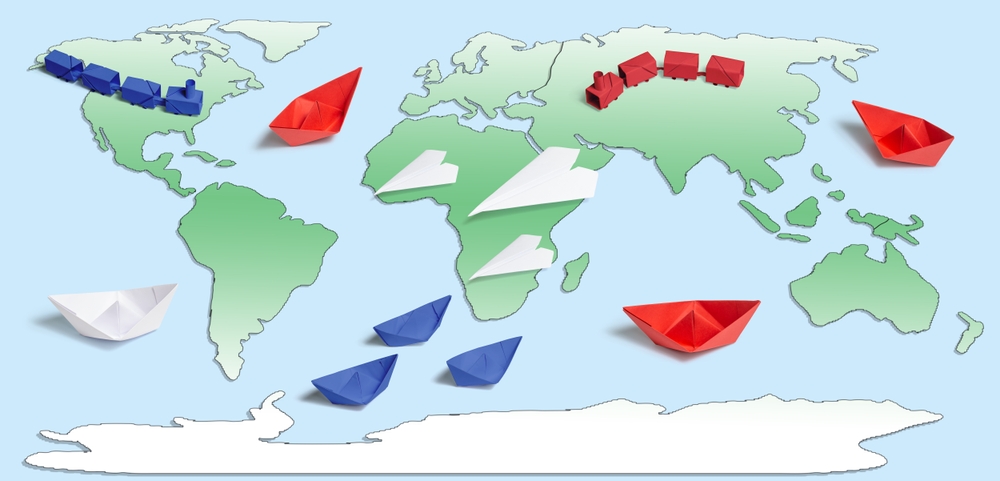
Shipping a boat internationally involves more complexities and variables that can influence the cost. Here are a few factors to consider:
- Distance: The distance between the origin and destination countries will impact the cost. Shipping a boat to a neighboring country may be more economical compared to shipping it halfway across the world.
- Customs and Duties: When shipping a boat across international borders, you may be subject to customs fees, import taxes, and other duties. These additional costs should be factored into your budget.
- Import and Export Regulations: Each country has its own regulations and requirements for importing and exporting boats. Familiarize yourself with these regulations to ensure a smooth process and avoid any unforeseen costs.
Inland Transport
In some cases, you may need to transport your boat from a port to an inland location or vice versa. This type of transport can also affect the overall cost. Factors to consider include:
- Distance: The distance between the port and the inland location will impact the transportation cost. Longer distances will generally incur higher expenses.
- Road Infrastructure: The quality of the road infrastructure and accessibility to the inland location will also play a role. If the destination is in a remote area with limited road access, it may lead to additional costs.
It’s important to keep in mind that the shipping costs will vary depending on the specific details of your boat and the shipping company. Obtaining quotes from multiple shipping companies and discussing your specific needs will give you a clearer understanding of the costs involved.
Boat Shipping Cost Factors and Boat Specifications
When it comes to shipping your boat, understanding its specifications is crucial in determining the overall cost. Here are some important boat specifications that can affect the pricing of your boat shipping:
Boat Size and Weight
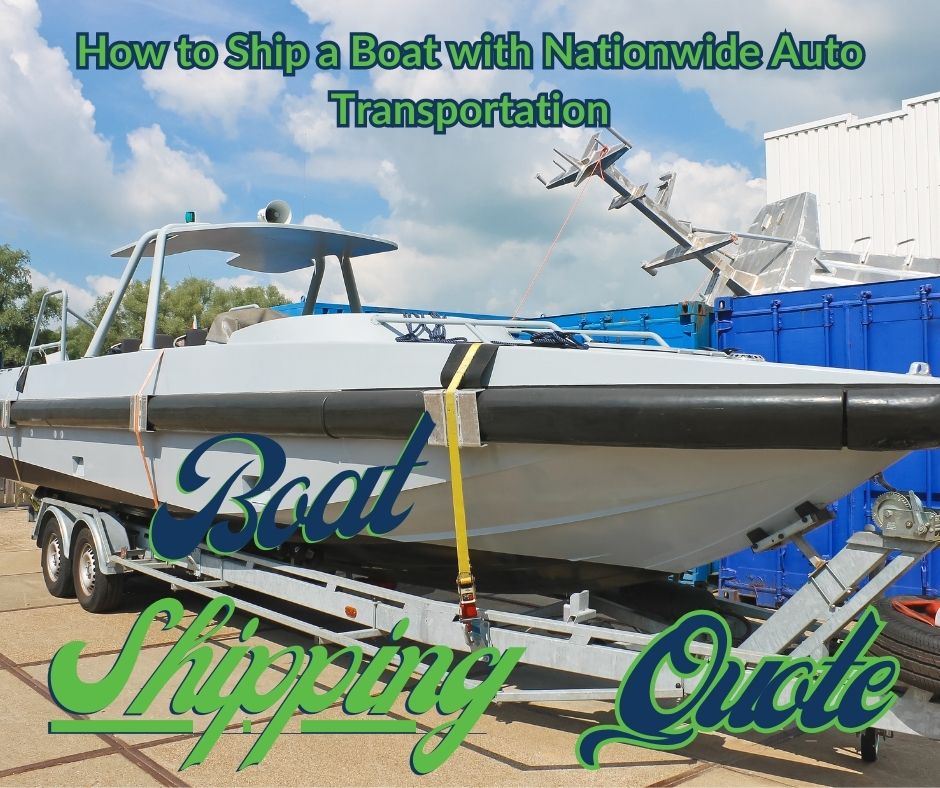
The size and weight of your boat play a significant role in determining the cost of shipping. Larger and heavier boats require more resources, such as specialized transport equipment and additional manpower, which can drive up the overall shipping cost. Some common measurements to consider include:
- Length: Measure the length from the bow to the stern, excluding any extended parts like swim platforms or bow pulpits.
- Width: Measure the maximum width of the boat, including any accessories like side mirrors or outriggers.
- Height: Measure the highest point of the boat from the waterline, including any antennas, masts, or radar domes.
- Weight: Take into account the boat’s weight, including any added equipment, fuel, and water.
Boat Type and Construction
The type and construction of your boat will also impact the shipping cost. Different types of boats, such as sailboats, powerboats, and yachts, may require different handling and accommodations during transportation. Additionally, boats made of more delicate materials, such as wood or fiberglass, may require extra care and special handling to prevent damage during transit.
Boat Condition
The condition of your boat can also influence the shipping cost. A well-maintained boat that is in good operational condition may require less preparation and special handling compared to a boat that needs maintenance or repairs. It’s essential to ensure that your boat is in proper working order before shipping to avoid any delays or additional costs.
Taking note of these boat specifications and communicating them accurately to the shipping company will help them provide you with an accurate quote for the service. Keep in mind that any inaccuracies or omissions in the provided specifications can lead to unexpected costs or logistical challenges during the shipping process.
Pro tip: Measure your boat’s specifications carefully or consult your boat’s manual for accurate measurements. Ensuring that you provide precise information to the shipping company will help in estimating the cost more accurately.
Biz Boats
Next, we will discuss the different methods of transportation commonly used for boat shipping.
Transportation Method and Boat Shipping Costs
When it comes to shipping your boat, choosing the right transportation method is crucial. The method you choose will not only determine the cost of shipping but also the level of protection and convenience. Here are the three main transportation methods to consider:
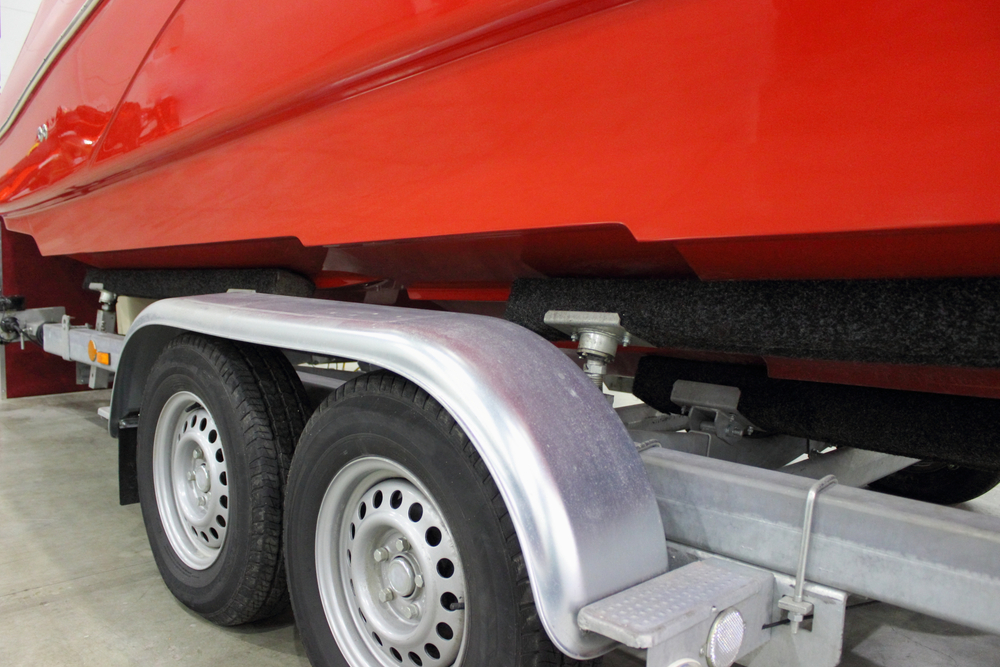
Road Transportation
Road transportation is the most common method for shipping boats, especially for domestic shipments. This involves loading your boat onto a specialized trailer or flatbed truck and hauling it to its destination. Here are some key points to consider:
- Cost: Road transportation is generally the most cost-effective option for shipping boats within the same country.
- Convenience: Since road transportation allows for door-to-door service, it offers a high level of convenience. You don’t have to worry about transporting your boat to a port or marina.
- Access: Road transportation provides access to inland areas and places without nearby waterways or ports.
- Size Limitations: There may be size limitations on the road, such as maximum height, width, and weight restrictions. It’s important to consider these limitations when selecting this transportation method.
Sea Transportation
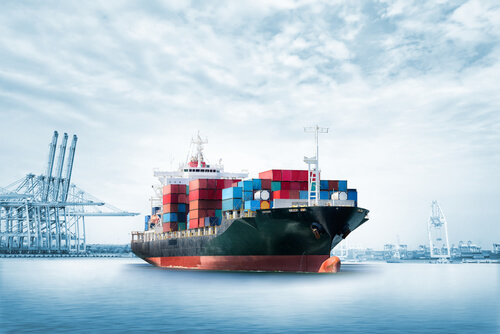
Sea transportation is a popular choice for shipping boats internationally or over long distances. This method involves loading your boat onto a cargo ship or a specialized yacht transport vessel. Here are some key points to consider:
- Cost: Sea transportation can be cost-effective for long-distance shipments, especially if you opt for shared container services.
- Protection: During sea transportation, your boat will be secured in a container or on a shipping cradle to protect it from the elements and potential damage.
- Time: Sea transportation can be slower compared to other methods, as it involves sailing from one port to another. It’s important to factor in the transit time when planning your shipment.
- Accessibility: Sea transportation is limited to ports and waterways. If your destination doesn’t have a nearby port, you may need to consider alternative transportation methods for the final leg of the journey.
Air Transportation
Air transportation is the fastest method for shipping boats but is usually the most expensive option. This method involves loading your boat onto a cargo plane and flying it to its destination. Here are some key points to consider:
- Speed: Air transportation offers the fastest transit time, making it ideal for urgent or time-sensitive shipments.
- Handling: Boat transport by air requires proper packaging and careful handling to ensure the boat’s safety during loading and unloading.
- Size Limitations: Due to the size of cargo planes, there are usually restrictions on the dimensions and weight of the boat that can be transported.
- Cost: Air transportation is generally the most expensive option due to the specialized equipment and fast transit times involved.
It’s important to take into account the distance, location, budget, and specific requirements of your boat when deciding on the transportation method. Each method has its own advantages and considerations, so make sure to choose the one that best suits your needs.
Looking for more insights on auto transportation? Dive into our comprehensive blog for expert advice, tips, and the latest trends in vehicle shipping. Whether it’s boat, car, or RV transport, find everything you need to know!
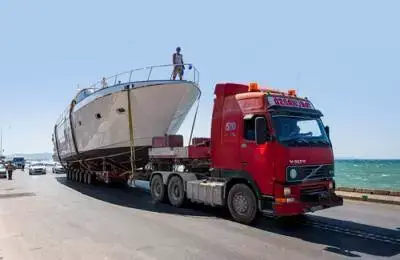
Additional Services
When it comes to shipping your boat, there are additional services that may affect the overall cost. These services can add convenience and peace of mind, but they also come with their own price tags.
Here are some common additional services to consider:
Loading and Unloading
Loading and unloading your boat can be a complex task that requires special equipment and expertise. Some shipping companies offer loading and unloading services as part of their packages, while others charge extra for this service. Hiring professionals to handle the loading and unloading process can ensure that your boat is handled safely and minimize the risk of damage during transport.
Cradle or Trailer Rental
If you don’t already have a cradle or trailer for your boat, you may need to rent one for transportation. The size and type of your boat will determine the type of cradle or trailer needed. Renting a cradle or trailer can be an additional cost to consider when shipping your boat.
Customs Fees and Paperwork
“Additional services such as loading and unloading, cradle or trailer rental, and dealing with customs paperwork can add convenience but also come with their own costs.” Contact us for a clear and understandable boat shipping process!
For international shipping customs regulations, refer to the U.S. Customs and Border Protection guidelines.
Evaluate Your Needs and Budget about Boat Shipping Costs
When you’re deciding on extra services for your boat shipment, think carefully about what you really need and how much you want to spend. If saving time and avoiding stress matters to you, it might be worth paying a bit more for these services. But if you’re okay doing some tasks yourself and want to cut down on costs, it’s totally fine to skip these extras. The key is to strike a balance between convenience and keeping your expenses in check.
Comparing Boat Shipping Costs and Companies
As you look into different shipping companies and compare their prices, always ask about the extra services they offer. Are they included in the package, or do they cost extra? Sometimes, companies bundle certain services in a deal, while others charge separately for each one. Understanding what’s included in the price and what costs more is really important.
Selecting the Right Shipping Company | Boat Shipping Cost Factors
Choosing the right shipping company is super important, especially for these extra services. Go for a company that’s known for being reliable and has the right equipment and know-how. Plus, they should have insurance to make sure everything’s safe and sound. Doing a bit of homework, like checking out their credentials and reading what other customers say, will help you pick a company you can trust. This way, you’ll feel more at ease when it comes to shipping your boat.
Striking the Right Balance
In summary, when it comes to boat shipping cost factors, it’s all about understanding what extra services you might need and how they fit into your budget. Whether it’s boat shipping costs or boat transport cost, the goal is to make shipping a boat smooth and stress-free. Remember, good boat transport involves more than just the price tag; it’s about getting your boat where it needs to be safely and efficiently.
To summarize, when it comes to additional services for boat shipping:
- Loading and unloading services can ensure safe handling of your boat.
- Renting a cradle or trailer may be necessary depending on the size and type of your boat.
- Customs fees and paperwork must be accounted for when shipping internationally.
- Balancing convenience and cost is essential in choosing which additional services to include.
- Researching shipping companies, comparing quotes, and checking credentials are important steps in making the right decision.
With these considerations in mind, you’ll be well-prepared to choose the right additional services for your boat shipment and ensure a smooth and successful transport experience.
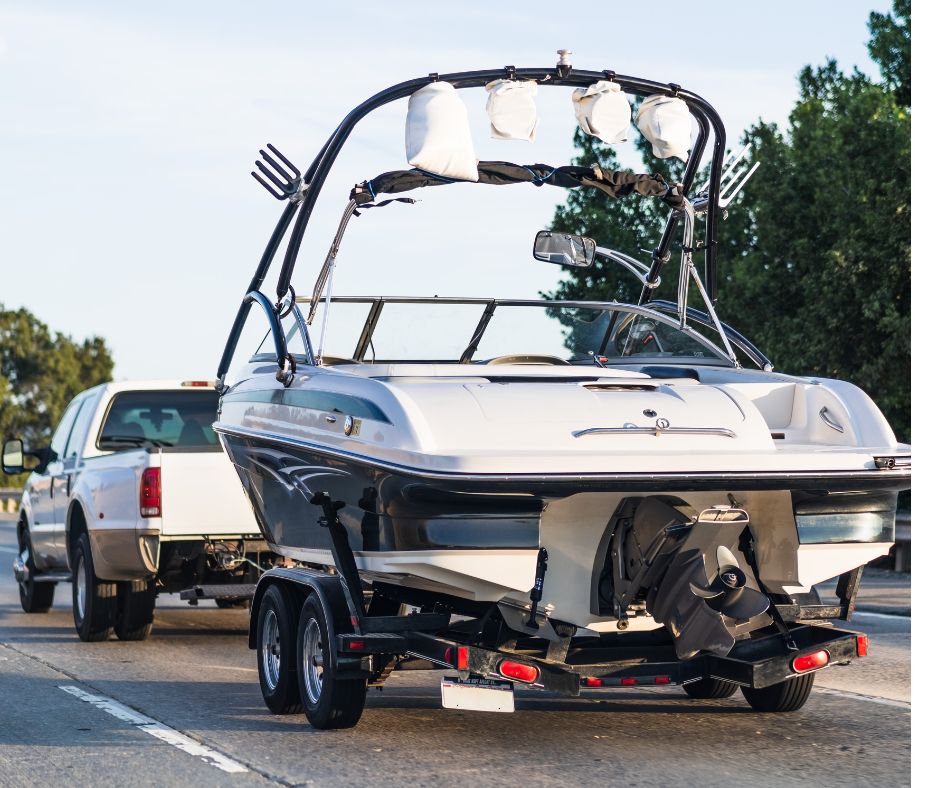
Market Conditions and Boat Transport Cost
When it comes to boat shipping costs, market conditions play a significant role. The price you pay for shipping your boat can be influenced by various factors that affect the overall shipping industry. Understanding these market conditions can help you plan your boat shipment more effectively and potentially save money.
For current insights on fuel prices impacting boat shipping costs, visit the U.S. Energy Information Administration’s fuel price forecast.
Here are some key market conditions to consider:
- Fuel Prices: Fuel costs can have a significant impact on boat shipping prices. Fluctuations in fuel prices can directly affect the operating costs of shipping companies. When fuel prices rise, shipping companies may increase their rates to compensate for the added expense. Conversely, when fuel prices decrease, you may see a drop in shipping costs.
- Supply and Demand: Like any industry, the boat shipping market is influenced by supply and demand. If there is high demand for boat shipping services and limited availability of carriers, prices may increase. Conversely, if there is low demand and an abundance of carriers, prices may be more competitive.
- Time of Year: The time of year can also impact boat shipping costs. During peak seasons, such as summer, when many people are moving their boats or shipping them to popular boating destinations, prices may be higher due to increased demand. In contrast, during off-peak seasons, such as winter, prices may be more affordable.
It’s important to keep these market conditions in mind when planning your boat shipment. Monitoring fuel prices, considering the time of year, and being aware of supply and demand can help you make informed decisions and potentially save on shipping costs.
“Understanding the market conditions in the boat shipping industry can help you navigate the pricing landscape and make informed decisions about shipping your boat.”
Nationwide Auto Transportation
Insurance and Liability | Boat Shipping Cost Factors
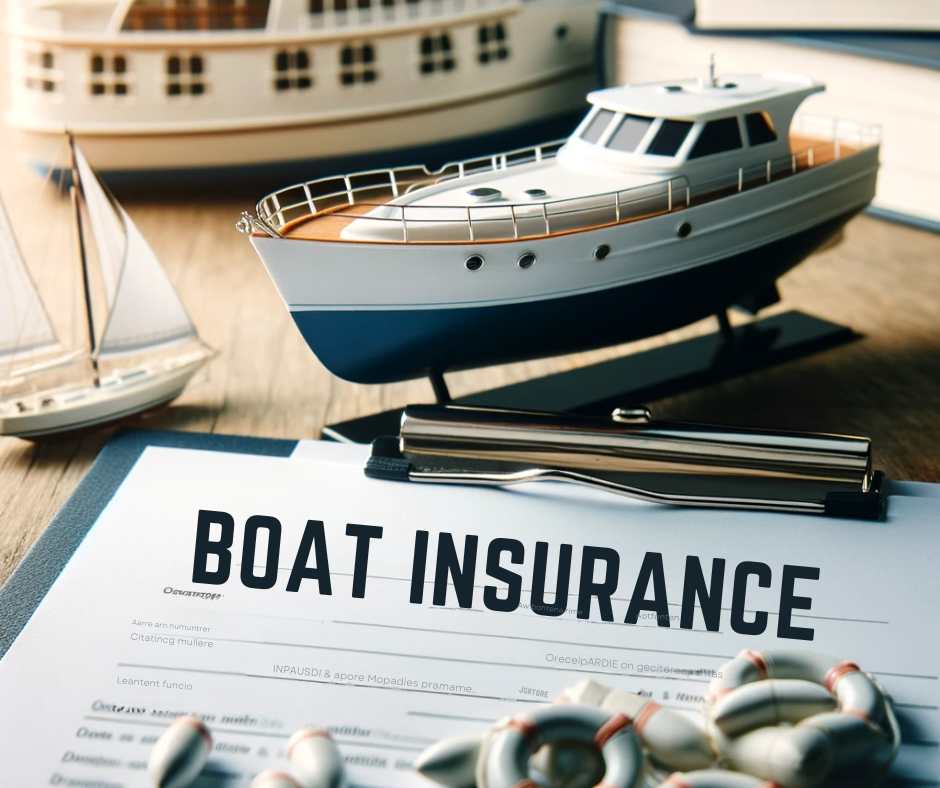
When it comes to shipping your boat, it’s important to consider insurance and liability. Accidents can happen during transportation, and having the right insurance coverage in place can protect you financially. Here’s what you need to know about insurance and liability when shipping your boat:
Insurance Coverage
- Hull Insurance: This type of insurance covers damage to the boat itself, including accidents that occur during transport. It typically covers things like collisions, theft, and damage caused by fire or natural disasters. It’s important to check the coverage limits and deductibles of your hull insurance policy to ensure it provides adequate protection during transportation.
- Cargo Insurance: Cargo insurance covers damage to your boat while it is in transit. This can include damage caused by accidents, theft, weather events, or other unforeseen circumstances. It’s essential to check if your boat shipping company provides cargo insurance and the extent of coverage it offers.
Liability Protection
- Carrier’s Liability: The boat shipping company is liable for any damage that occurs to your boat while it is under their care. However, the extent of their liability may vary, so it’s crucial to understand the company’s terms and conditions. Some companies have limited liability, while others offer full liability coverage. Be sure to clarify the level of protection provided by the shipping company.
- Owner’s Liability: As the boat owner, you may also have some liability in certain situations. For example, if you haven’t properly secured your boat or it has existing damage that worsens during transportation, you may be held partially responsible. To minimize your liability, ensure that your boat is in good condition before shipping and follow any specific instructions provided by the shipping company.
Valuation and Appraisal
- Appraisal: Before shipping your boat, it’s a good idea to get an appraisal to determine its value. This can be useful in case of damage or loss during transportation. An appraisal provides documentation of the boat’s condition and value before shipping, which can help in the event of an insurance claim.
- Valuation: When it comes to insurance coverage, you’ll need to determine the value to insure your boat for. This can be the actual cash value (ACV) or the agreed-upon value (agreed value). ACV takes into account depreciation, while agreed value is a predetermined value agreed upon by you and the insurance company. It’s important to choose the right valuation method to ensure you have adequate coverage.
Remember, insurance and liability are essential aspects of boat shipping. It’s crucial to understand the coverage and liability limits provided by both your hull insurance and the boat shipping company. By being knowledgeable about your insurance and liability protection, you can ensure a smooth and worry-free boat shipping experience.
Choosing a Shipping Company for Boat Transport Cost

When it comes to choosing a shipping company to transport your boat, there are a few key factors to consider. After all, you want to ensure that your vessel is in safe hands and that you’re getting the best possible service for your money.
Here are some tips to help you choose the right shipping company for your boat:
Researching Shipping Companies
Before making a decision, take the time to research several shipping companies. Look for companies with experience in boat transportation and a solid reputation in the industry. Read customer reviews and check their credentials to ensure that they are licensed and insured.
Comparing Quotes and Services | boat transport cost
Once you have a list of potential shipping companies, reach out to them and request quotes for your specific boat transportation needs. Compare the quotes and consider the services included in each offer. Keep in mind that the lowest price doesn’t always mean the best service, so make sure to consider other factors as well.
Checking Credentials and Reviews
Before finalizing your decision, verify the credentials of the shipping company. Ensure that they have the necessary licenses and permits to operate legally. Also, take the time to read reviews and testimonials from previous customers. This will give you an idea of their reputation and the quality of service they provide.
Specialized Experience
If you have a specific type of boat or a unique transportation requirement, it’s important to find a shipping company with specialized experience in handling similar situations. They will have the knowledge and expertise to handle your boat with care and ensure a smooth transportation process.
Communication and Customer Service | Boat Shipping Cost Factors
Pay attention to how the shipping company communicates with you throughout the inquiry and booking process. Do they respond quickly and provide clear and detailed information? Good communication is key in any business transaction, so choose a company that values responsiveness and excellent customer service.
Insurance and Liability Coverage
Ask about the insurance coverage and liability protection offered by the shipping company. It’s important to have peace of mind knowing that your boat is protected in case of any unforeseen accidents or damages during transportation. Additionally, inquire about the valuation and appraisal process for your boat to ensure proper compensation in case of loss or damage.
Trustworthy and Transparent
Trust is an important factor when choosing a shipping company. Look for a company that is transparent about their processes, fees, and timelines. They should be able to provide you with all the necessary information upfront and answer any questions or concerns you may have. Trust your instincts and choose a company that gives you confidence in their abilities.
Remember, choosing the right shipping company is crucial to ensure the safe and secure transportation of your boat. Take the time to research, compare quotes, and check credentials to make an informed decision. By doing so, you can have peace of mind knowing that your prized possession is in good hands.
Mastering Boat Shipping Cost Factors
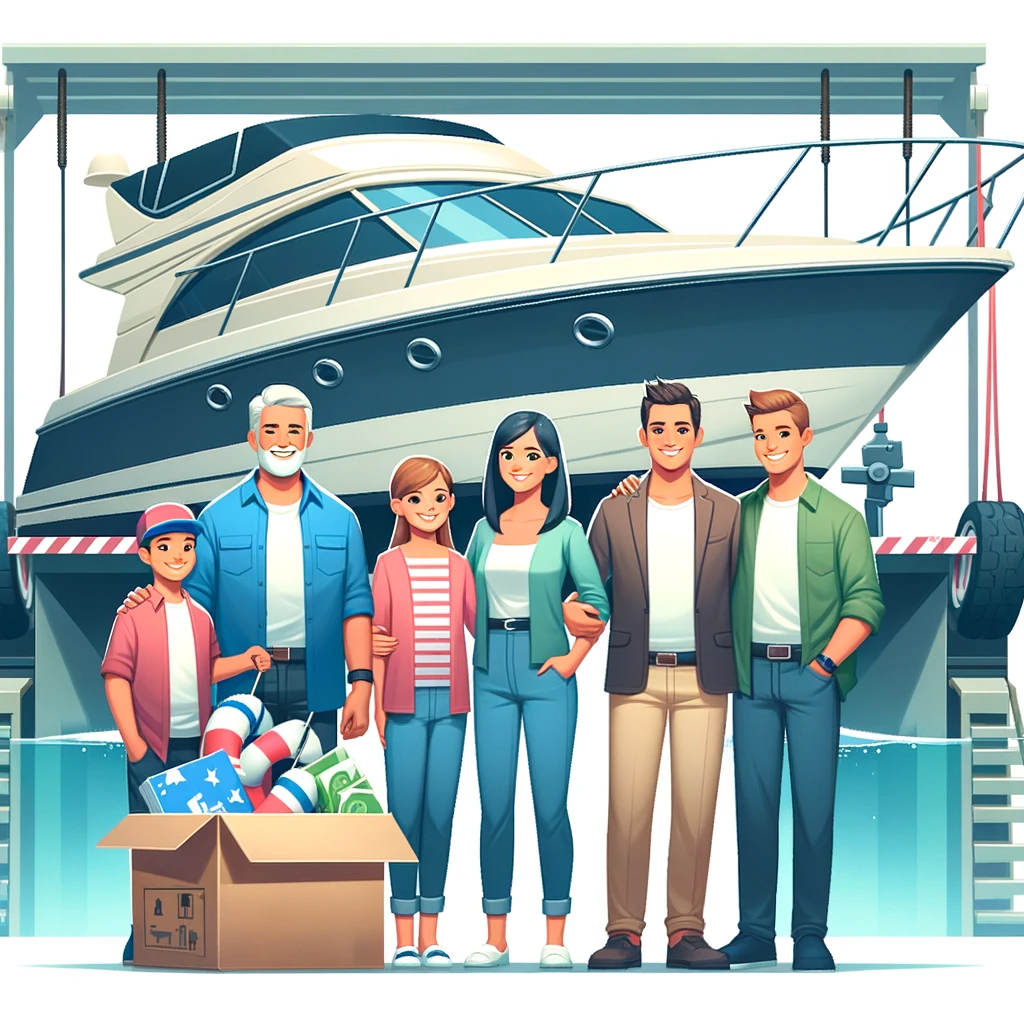
As we navigate towards the end of our discussion on boat shipping cost factors, it’s clear that understanding these elements is crucial for effectively planning and budgeting your boat transport. Whether you’re considering the type of boat shipping, the distance and location, the specific attributes of your boat, the method of transportation, additional services, market conditions, or insurance and liability aspects, each factor plays a significant role in the overall cost.
Choosing the Right Partner for Boat Shipping
In your journey to find the best boat shipping option, it’s vital to research and compare quotes and services from different companies. This ensures that you select a service that not only fits your budget but also meets your specific requirements. Additionally, verifying the credentials and reading reviews of the shipping company are important steps to confirm their reliability and quality of service.
At Nationwide Auto Transportation, we offer a range of shipping services including boat transport, motorcycle shipping, and RV transport. Our commitment to reliable and safe delivery ensures that your vehicle arrives at its destination on time and in perfect condition.

Get Started with Nationwide Auto Transportation
Shipping your boat or other vehicles can be a complex process, but with the right knowledge and preparation, you can manage it efficiently. We hope this guide has equipped you with valuable insights into the various factors affecting boat shipping costs. Ready to start your boat shipping journey with a trusted partner?
Request a quote from Nationwide Auto Transportation today and ensure a smooth and successful transport experience. Safe travels! Are you planning to ship a boat internationally? Navigate the waters effortlessly with our comprehensive International Boat Shipping Guide and set sail for a seamless transport experience.
Frequently Asked Questions | Boat Shipping Cost Factors
- What are the main factors that affect boat shipping costs?The main factors that affect boat shipping costs include the size and weight of the boat, the distance traveled, the shipping method (such as open or enclosed transport), any special handling requirements, and the current fuel prices.
- Is it cheaper to ship a boat by land or by sea?The cost of shipping a boat by land or sea depends on various factors. Generally, shipping a boat by land is cheaper for shorter distances, while shipping by sea is more cost-effective for longer distances or international shipments. It’s best to compare quotes from different shipping providers to find the most affordable option for your specific needs.
- Are there any additional fees or charges I should be aware of?Yes, there might be additional fees or charges associated with boat shipping, such as cradle or lift fees, customs fees for international shipments, insurance fees, storage fees for delayed deliveries, and specialized equipment fees for oversized or unique vessels. It’s important to discuss and clarify all potential fees with your shipping provider upfront.
More Boat Shipping Cost FAQs
- Can I save money on boat shipping costs?Yes, there are ways to save money on boat shipping costs. Some cost-saving tips include planning in advance to avoid rushed or urgent shipments, consolidating shipments with other boat owners, choosing the most efficient shipping route, and considering flexible delivery options to avoid additional fees or surcharges. It’s also beneficial to compare multiple quotes from different shipping companies to find the best price.
- How can I ensure the safe transport of my boat?To ensure the safe transport of your boat, choose a reputable and experienced boat shipping company. Make sure they have appropriate insurance coverage, use secure and specialized equipment for loading and unloading, properly secure your boat during transit, and provide updates and tracking throughout the shipping process. Additionally, prepare your boat by removing any valuables, securing loose items, and following the shipper’s instructions for winterizing or preparing the boat.



